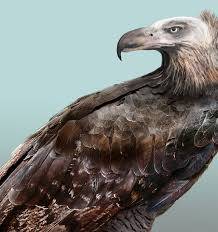The Haast's Eagle: The Largest Eagle to Ever Soar
The Haast's eagle (Harpagornis moorei) was once the undisputed ruler of the skies in New Zealand, but this remarkable bird of prey became extinct around 500 years ago. Renowned for its massive size and hunting prowess, the Haast's eagle was the largest eagle species to have ever lived, surpassing even the size of the well-known golden eagle. Its extinction is a testament to the delicate balance of ecosystems and the profound impact human activity can have on the natural world.
Size and Physical Characteristics
The Haast's eagle was a true giant among birds of prey. Adult females, which were the larger sex, weighed up to 15 kilograms (33 pounds) and had a wingspan of up to 2.6 meters (8.5 feet). Males, though smaller, still boasted impressive dimensions. The Haast's eagle's large size enabled it to hunt the island's largest terrestrial prey, including the mighty moa, a giant, flightless bird that stood up to 3.6 meters (12 feet) tall and weighed over 250 kilograms (550 pounds).
The eagle had powerful talons capable of exerting immense force, which it used to capture and kill its prey. Its beak, large and hooked, was designed for tearing flesh, while its sharp eyesight allowed it to spot prey from great distances. Unlike most eagles, which rely on scavenging as much as hunting, the Haast's eagle was a formidable predator, adept at taking down prey that was larger than itself.
Diet and Hunting Methods
The Haast's eagle's diet primarily consisted of moa, which roamed the forests and plains of New Zealand. These giant birds were relatively slow-moving and flightless, making them easy targets for an apex predator like the Haast's eagle. The eagle likely hunted alone, swooping down from high perches to ambush its prey with a deadly strike. Its large size and strength enabled it to grasp and kill even the heaviest moa, which was a feat unmatched by other predators of the time.
Evidence suggests that the Haast's eagle may have also hunted smaller mammals and other bird species, but its reliance on the moa likely played a central role in its evolutionary development. The eagle’s hunting strategy, which would have involved both stealth and brute strength, made it one of the most efficient predators of its time.
The Extinction of the Haast's Eagle
The Haast's eagle became extinct around 1400 CE, roughly 500 years ago, coinciding with the arrival of the MÄori people to New Zealand. The extinction of the moa, which was likely driven by overhunting by the MÄori, led to a sharp decline in the eagle's food supply. As the moa population dwindled, the Haast's eagle found itself with less to hunt, which, in turn, led to its eventual demise.
The Haast's eagle was at the top of the food chain, and like many apex predators, its survival was intricately tied to the balance of the ecosystem. Once the moa disappeared, the eagle had little chance of survival. Additionally, habitat destruction and the introduction of new predators by the MÄori—such as rats and dogs—may have further contributed to the eagle's extinction.
Legacy and Scientific Significance
The extinction of the Haast's eagle marked the loss of an extraordinary bird, but it has also provided valuable insight into the history of New Zealand’s unique ecosystems. Fossils of Haast’s eagle have been found throughout the South Island of New Zealand, and researchers have studied these remains to understand the bird's behavior, diet, and role in the ecosystem.
Today, the Haast's eagle is remembered as a symbol of the fragility of ecosystems and the powerful impact humans can have on the natural world. Its extinction serves as a reminder that the destruction of species at the top of the food chain can have far-reaching consequences throughout the entire ecosystem.



